Interparliamentary Assembly on Orthodoxy (IAO)
Interparliamentary Assembly on Orthodoxy (IAO)
The IAO was established at the initiative of the Hellenic Parliament, in Halkidiki, Greece, in November 1993. The Assembly consists of Orthodox Christian Members of Parliament, represented either as a national delegation or individually. Moreover, countries with an Orthodox Church, but no elected Orthodox MPs, can also participate as observers.
The House of Representatives, a founding member of the IAO, is represented by a four-member delegation, consisting of Mr. Panicos Leonidou (Head - DIKO), Mr. Efthimios Diplaros (DISY), Mr. Elias Myrianthous (KS EDEK) and Mr Marinos Mousiouttas (DIPA). Cypriot MPs actively participate in all regular Sessions and activities of the organs of the IAO, namely the annual General Assembly and two regular joint meetings of the International Secretariat and the Chairpersons and Rapporteurs of the IAO Committees, in Spring and Fall, respectively.
Apart from Cyprus, delegations from the Parliaments of the following countries participate in the IAO: Greece, Russia, Albania, Armenia, Bosnia-Herzegovina, Bulgaria, Georgia, Estonia, Croatia, Kazakhstan, Latvia, Belarus, Lithuania, Moldova, Ukraine, Poland, Romania, Romania, Serbia, Montenegro, Slovakia, Czechia, Finland, Jordan, Lebanon and Palestine participate in the IAO. Occasionally, MPs from Egypt, Ethiopia, Argentina, Australia, United States, Canada, Congo, Mozambique, Uganda, Sudan and Chile also participate.
A main objective of the IAO is to develop a multilevel political and cultural activity to promote the Orthodox heritage and its contribution to the global dialogue for peaceful coexistence among peoples. In this regard, the Assembly encourages exchanges for the purpose of broadening relations between participating parliaments, as well as with other international organisations and amongst parliamentary, ecclesiastical, academic, spiritual institutions and personalities. Moreover, IAO advances human rights protection and the activation of Orthodoxy in seeking solutions to critical problems of modern society. IAO also advances the elements of Orthodoxy, which favourably affect mutual understanding between cultures, peoples and states.
The supreme decision-making organ of the IAO is the General Assembly (G.A.) which convenes annually in June, elects its President and adopts decisions, resolutions and other documents on issues of concern. The executive body of the IAO is the International Secretariat (I.S.), consisting of the Secretary General (S.G.), the Alternate S.G., the Treasurer and seven Members, elected biannually by the G.A. Russia and Greece are permanent members of the I.S. The S.G. is always a Greek MP and the President of the G.A. is a Russian MP. The I.S., which is based in Athens, is responsible for the work of eight standing Committees: on Finance, on Regulation, on Human Rights, on Culture, on International Policy, on Mass Media, on Social Affairs, on Education and three Coordinating Cooperation Committees with the Pan-African Parliament (PAP), the Parliamentary Assembly of the Russian – Belarus Union and the Parliamentary Union of the Organisation of the Islamic Cooperation member-states (PUIC), as well as the Monitoring Committee on the operation of the Observatory on Religious Persecutions and the Cooperation Working Group with the International Catholic Legislators Network (ICLN). Committee members also have a two-year term.
Apart from its founding meeting, the IAO has held twenty-six annual plenary meetings to date, the last of which in Tbilisi, Georgia, in June 2019. In addition to the Cyprus delegation’s participation in the various events of the IAO abroad, the House of Representatives hosted five meetings of the I.S. and Committee Chairpersons and Rapporteurs of the IAO, in Nicosia (May 1997, March 1999, December 2008 and November 2014) and in Limassol (April 2019).
The IAO has repeatedly adopted resolutions and other documents, expressing in various ways its support for Cyprus’ just cause in general, and more particularly regarding specific aspects of the Cyprus problem, i.e. the systematic destruction of the cultural heritage in the occupied areas.
Website: https://eiao.org/home_english_iao

